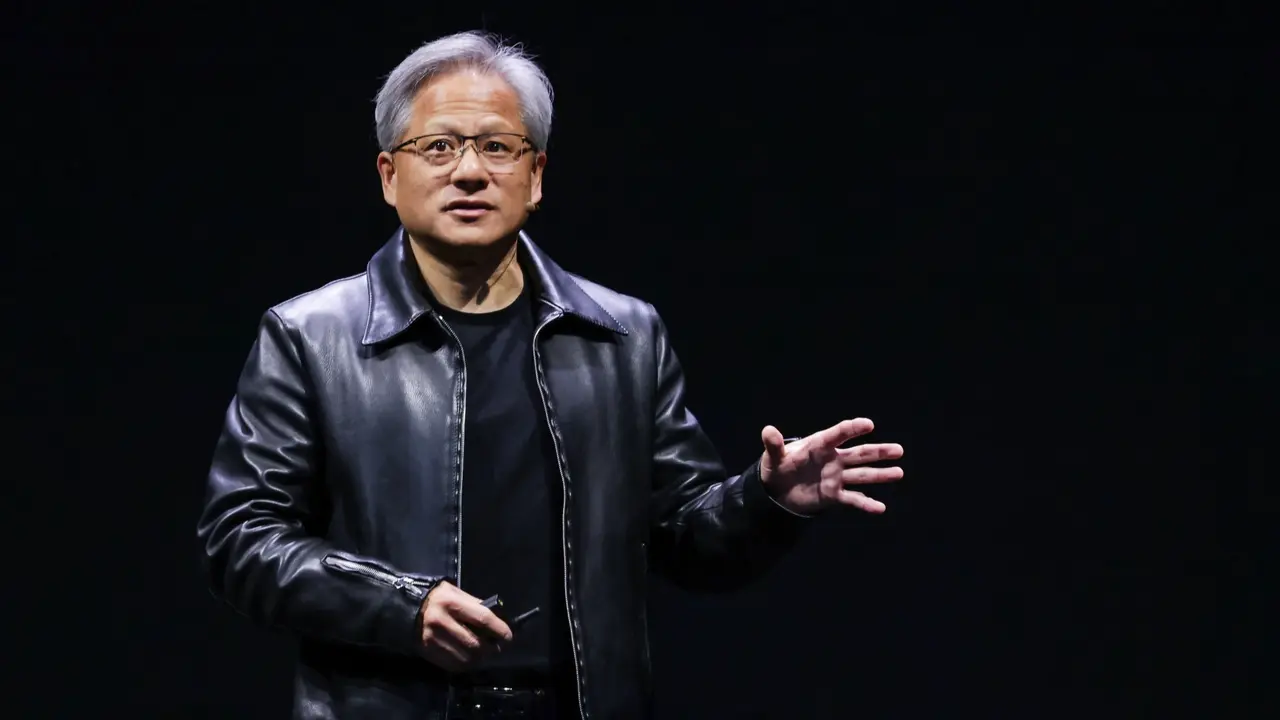Updated 1 May 2025 at 16:07 IST
Are AI Factories the Future of Manufacturing? Nvidia CEO Explains Why
With the global battle for AI dominance heating up, Huang's vision highlights the importance for American industries to move quickly to incorporate AI.
- Republic Business
- 3 min read

Nvidia CEO Jensen Huang has appealed to American businesses to become "AI factories," embedding artificial intelligence in their production process, as reported by the Wall Street Journal.
Addressing the Hill and Valley Forum in Washington, D.C., Huang stressed that future businesses need to create physical products as well as AI-based intelligence to compete.
AI Factories: The Next Industrial Revolution
Huang explained AI factories as facilities which translate data into intelligence with Nvidia's sophisticated chips driving them. "Just as we produce physical cars these days, or anything physical in the future, there'll be a digital one of it," he explained to The Wall Street Journal.
“So you need an AI factory to produce the AI model that operates in the car.” According to him, these AI factories would keep churning out "tokens," the building blocks of AI outputs, to fuel autonomous capabilities in other products.
Advertisement
"In the future, all companies that make things will have a factory that makes the things they sell, and then it will have another factory that makes and generates the AI," Huang added.
Smarter, Not Bigger, Builds
The idea is to combine chips, software, design, and networking into one unified system. "Electricity goes into the factories and tokens come out," Huang said. The tokens, computed on Nvidia's chips, are critical for AI models that create text, video, and manipulate real-world machines.
For example, cars, equipment, and building machines might be able to function by themselves, requiring in-house AI activities by manufacturing firms. "Auto firms would do so," Huang said.
Advertisement
America Must Lead or Lose
Huang's comments are in the midst of increasing U.S. export restrictions on advanced Nvidia and AMD chips to China. The controls, which are being presented as a national security concern, have already prompted Nvidia to speak of a $5.5 billion financial hit. Huang would not comment specifically on those policies.
Rather, he issued a general call: "Policymakers need to see that we should be speeding up, enabling, and encouraging the American AI industry globally."
He is set to join a behind-closed-doors roundtable on Thursday with the House Foreign Affairs Committee to address chip sales and compliance, said individuals who are close to the matter.
ALSO READ: Extremely Bad Breach of...: Elon Musk Denies Report That Claimed Tesla Board Searching for New CEO
Trade Skills Matter
In addition to technological innovation, Huang highlighted the need for skilled manual skills in the imminent data centre construction boom. Construction jobs, steelwork, IT, and network jobs would play a key role in constructing infrastructure for AI.
"Your nation needs to recognise that trade craft is decent work, and it's needed to construct a nation," he stated.
Looking ahead even further, Huang predicted that AI would revolutionise the way businesses plan and run physical factories. He coined the concept of “digital twins,” computerised copies of factories that can be simulated and perfected before being constructed in the real world.
“Put together these many beautiful buildings entirely digitally, run it, optimise it, and use it to plan your output entirely digitally. The whole factory is software," he stated. “The whole factory it's a robot choreographing a lot of robots inside.” he said.
Published By : Musharrat Shahin
Published On: 1 May 2025 at 16:07 IST
